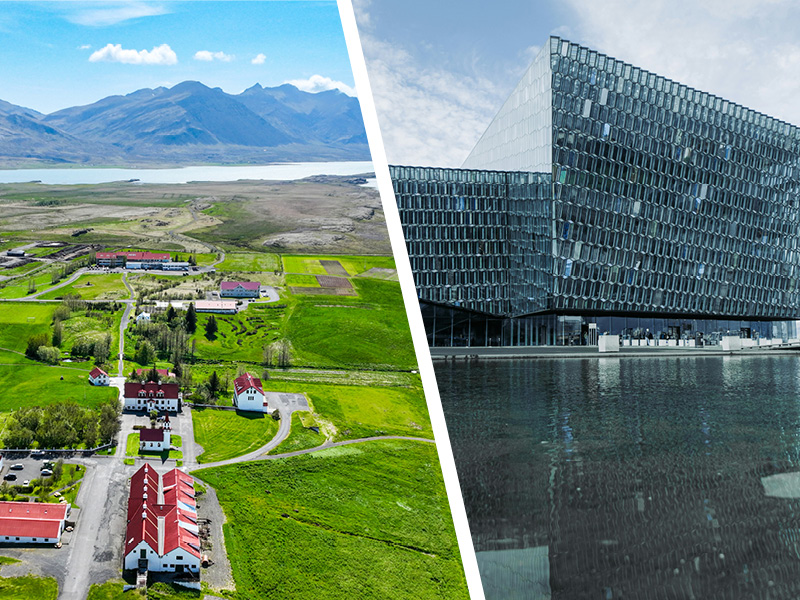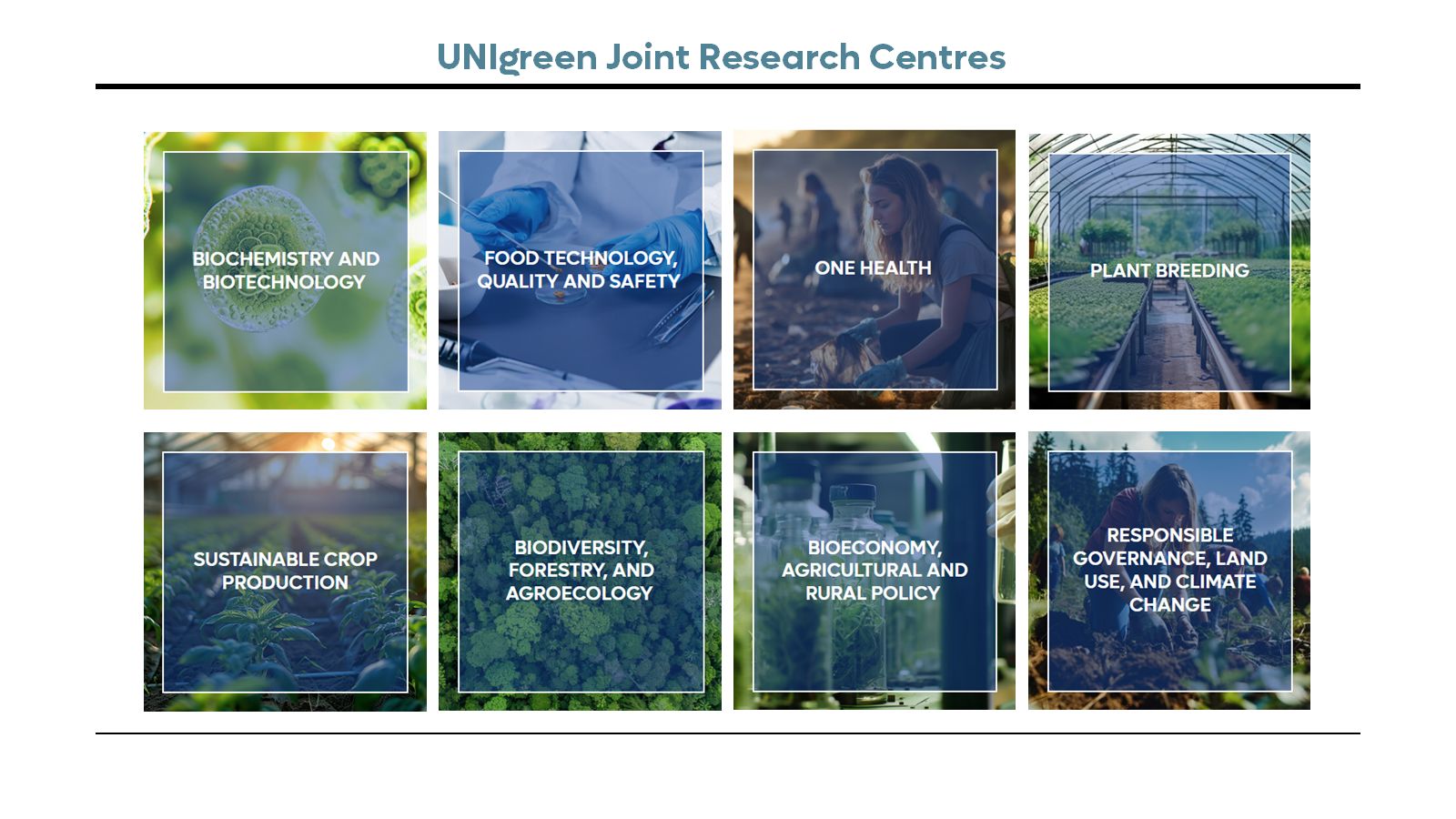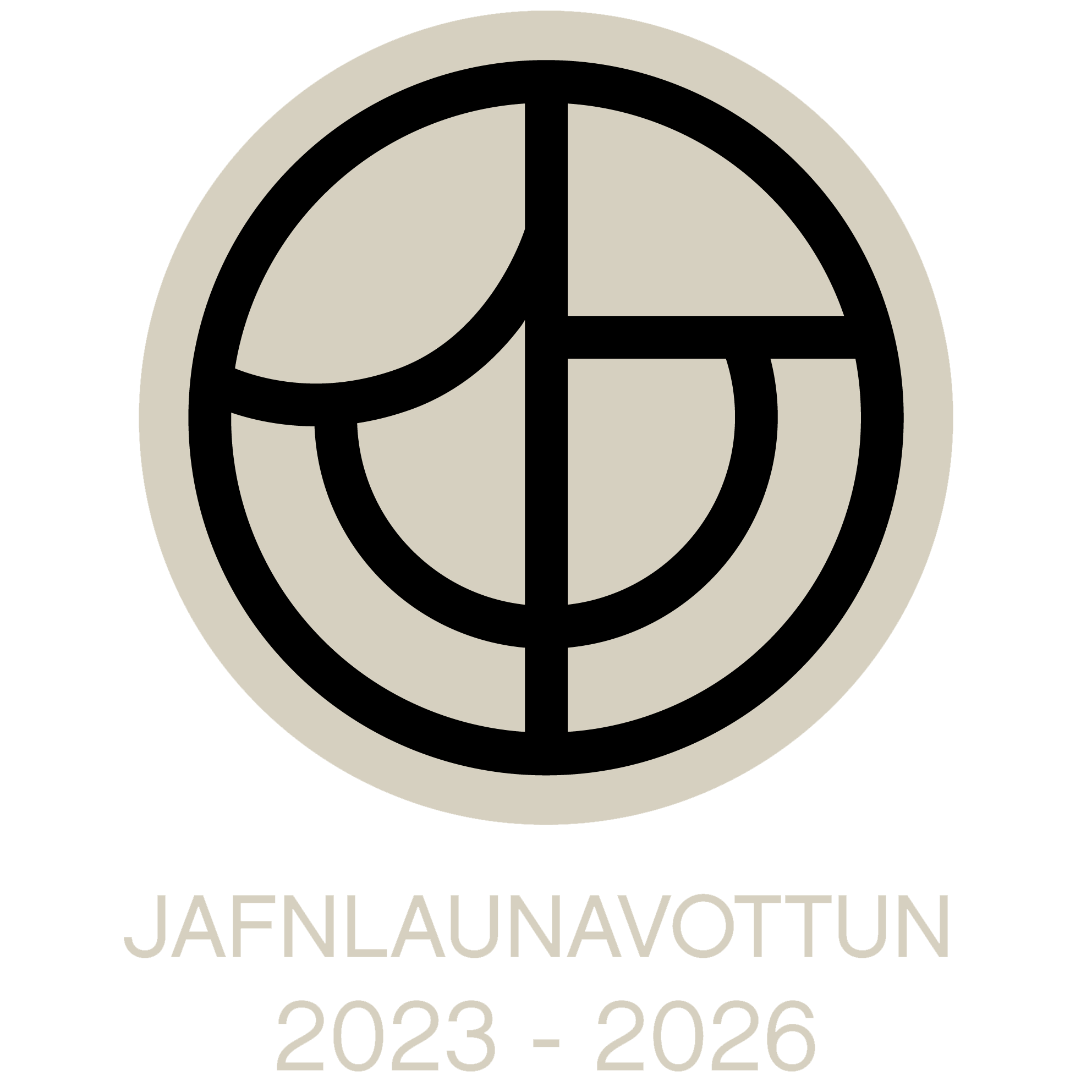AUI engages in the Arctic research

Our university is deeply engaged in research and education that addresses the unique challenges of northern and sub-Arctic environments. From climate resilience and ecosystem restoration to sustainable agriculture and urban planning, AUI researchers contribute to shaping a livable Arctic future.
Climate Resilience & Community Adaptation
Jóhanna’s research focuses on how small and remote Arctic communities adapt to climate-related hazards. Her work highlights the importance of place attachment—the emotional and cultural bonds people form with their environment—and how these bonds influence resilience strategies.
- Avalanche risk and comfort: Communities in Iceland facing avalanche threats often perceive their environment not as dangerous, but as comforting and familiar.
- Everyday adaptation: Climate change adaptation is not just about policy—it’s embedded in daily life, routines, and local knowledge.
- Agricultural subsidies: Jóhanna also examines how policy instruments like subsidies shape rural resilience and land use.
Selected articles
- Climate change adaptation as a part of everyday life: a practice theoretical approach to prevention and preparedness in remote communities
- “You talk of threat, but we think of comfort”: the role of place attachment in small remote communities in Iceland that experience avalanche threat | Regional Environmental Change
- Place Attachment and Climate-Related Hazards in Small Remote Communities in the Nordic Countries | Regional Environmental Change
Reports on agricultural subsidies (in Icelandic)
Soil Carbon & Wetland Dynamics
Susanne studies the transformation of wetland soils in volcanic and cold regions, focusing on carbon dynamics and long-term environmental change.
- Peatlands and volcanic ash: How windborne tephra and hydrological shifts affect organic matter in Arctic soils.
- Hydropower impacts: Investigating the carbon consequences of reservoir flooding.
- New land formation: Studying soil development on newly emerged land in Iceland.
Recent Articles
Urban Sustainability & Climate Adaptation
Harpa Stefánsdóttir
Harpa’s research bridges urban planning, livability, and climate adaptation in Nordic cities.
Harpa Stefánsdóttir’s research examines how perceptions of the built environment influence behaviour and subjective well-being, with particular emphasis on their implications for sustainable urban planning in the Nordic context. Her work explores how the physical and aesthetic qualities of urban spaces stimulate pleasure and livability, shaping everyday experiences and mobility choices. A central theme concerns the relationship between urban structure and non-motorised travel, linking urban form, walking, cycling, and public health. She has advanced mixed-method approaches that integrate qualitative and quantitative insights. Another strand of her research addresses place attachment and climate adaptation in second-home contexts, offering new perspectives on how experiential and emotional dimensions of place affect use patterns in response to climate change.
- Walkability: How small Nordic cities should be developed to promote and encourage walking.
- Aesthetics and mobility: The meaning of aesthetics and urban atmosphere for active transport and city life.
- Second homes and climate change: The interplay between multi-dwelling lifestyles, climate impacts, and the planning and use of second homes.
- Urban structure and travel behaviour: How residential location influences daily travel behaviour, activity participation, and physical activity.
Relevant Articles
Cold Ecosystems & Climate Warming
Alejandro Salazar Villegas
AUI leads long-term warming experiments in Iceland’s highlands, contributing to the International Tundra Experiment (ITEX)—a global network studying climate change impacts on Arctic ecosystems.
- Biocrusts and warming: Research shows increased biological activity in Iceland’s highlands under warming conditions.
- Legacy of ITEX in Iceland: AUI continues managing sites established by Prof. Ingibjörg Svala Jónsdóttir, ensuring continuity in Arctic ecological monitoring. There are dozens of ITEX sites in the Arctic, sub-Arctic and alpine ecosystems. This research is key to understanding the responses of cold ecosystems to climate change.
Relevant Articles
Arctic Agriculture & Food Security
Anna Guðrún Þórðardóttir
GABAR Project – Genetic Adaptation of Barley to Extreme Environments
AUI researchers study how Spring Barley adapts to sub-Arctic environments, supporting food security and sustainable agriculture.
- Genetic trials: Using data from three decades of field trials across Iceland.
- Breeding for resilience: Identifying barley varieties suited for cold climates and low-input systems.
Borealization & Herbivory Networks
Isabel C Barrio and her team
NordBorN & Herbivory Network
AUI is a key contributor to Arctic ecological networks that explore vegetation shifts and herbivore dynamics.
The biome boundary between the boreal forest and tundra is rapidly shifting due to ongoing climate warming and changes in land use. As a result, many species typical of the forest are expanding into the tundra, a process known as borealization. These shifts in the forest-tundra biome boundary will have important consequences for the functioning of terrestrial Nordic ecosystems and ultimately, for their ability to provide valuable ecosystem services.
- Borealization: Defining how warming shifts Arctic ecosystems toward boreal characteristics.
- Herbivory research priorities: Contributing to ICARP IV and shaping future Arctic science agendas.
Isabel is also involved as co-Editor in Chief of the journal Arctic Science (https://cdnsciencepub.com/do/10.1139/news.2025.09.12/full/)
Icelandic Nordscape Lab
Ivan Juarez, Daniele Stefano, Helena Guttormsdóttir
The Icelandic Nordscape Lab is a dynamic platform for research, education, and creative practice in landscape architecture, rooted in the unique ecological and cultural context of Iceland. Based at the Agricultural University of Iceland and centered around the living lab of Andakíll, the Lab explores the intersection of academic inquiry and design experimentation. Through collaborative projects, educational ecologies, and international engagements, the Lab fosters interdisciplinary dialogue and innovation in landscape thinking. Our work spans from site-specific explorations to global exhibitions, including participation in the Venice Biennale, and aims to cultivate new understandings of landscape through both research and practice.
Nature Based Solutions in the Nordics
Daniele is a co-author of the newly published Guide: A guide for Nature-based solutions in the Nordics : Implementing NbS to solve societal challenges in different ecosystems. This project explores the transformative potential of Nature-based Solutions (NbS) in addressing interconnected societal challenges such as biodiversity loss, climate change, and human well-being. Grounded in the Nordic context, the initiative showcases practical applications across six ecosystem types — coastal, cultural landscapes, forests, mountains, urban, and freshwater environments. Through restoration, sustainable management, and adaptive design, NbS are implemented to enhance ecological resilience, food security, health, and social equity. The guide also emphasises the importance of context-specific planning, monitoring, and evaluation, aligning with global standards and frameworks such as the IUCN and the Kunming-Montreal Global Biodiversity Framework.
High Latitude Dust & Arctic Engagement
This initiative investigates High Latitude Dust (HLD) as a significant climate forcer and air pollutant, with implications for human health, safety, and land degradation. Through research, education, and stakeholder engagement, the project raises awareness of dust-related atmospheric processes in Arctic and sub-Arctic regions. Activities include:
- Arctic Forum: AUI students engage directly with Arctic stakeholders to enhance awareness and improve services.
- Polar Winter School: Educational outreach focused on Arctic climate and environmental dynamics.
- UArctic Involvement: Participation in Thematic Networks and student-led initiatives.
- Global Collaboration: Contributions to the UN Sand and Dust Storm Coalition and potential involvement in the Copernicus Atmospheric Monitoring Service to improve air quality awareness and data accessibility in Iceland.
The project is supported by peer-reviewed research highlighting Iceland’s episodic role in atmospheric ice-nucleating particles and the vertical distribution of aerosols during Arctic dust storms.
Recent Articles
Forests, Trees & Time: Dendrochronology and Paleoecology
Ólafur is an Associate Professor at the Agricultural University of Iceland and a researcher at Land and Forest, Iceland, who focuses on the intricate relationships between trees, climate, and ecosystems over time. His work spans dendrochronology, wood anatomy, forestry, and paleoecology, using tree rings and wood structure to reconstruct environmental histories and understand forest dynamics in high-latitude regions. His recent publications explore the role of boreal forests in carbon cycling, the anatomical traits of trees under changing climates, and long-term ecological shifts in Northern Europe.
Recent Articles
Educational offer
MSc in Restoration Ecology
The MSc in Restoration Ecology at AUI equips students with the scientific knowledge and practical tools to address some of the most urgent environmental challenges of our time — including ecosystem degradation, biodiversity loss, unsustainable land use, and climate change. Rooted in Iceland’s unique landscapes and ecological contexts, the programme emphasises interdisciplinary approaches to restoring ecosystems and enhancing resilience.
AUI’s commitment to innovation and outreach is reflected in its development of two MOOCs on restoration, created in collaboration with GRÓ LRT and international partners. These courses bridge ecological science with economic perspectives and remain valuable resources for global learners.
Additionally, the Hekluskógar case study offers students a hands-on learning experience in restoration planning and business development, showcasing AUI’s collaborative and applied teaching methods.
MSc in Environmental Change in the Arctic (EnCHiL)
The EnCHiL Nordic Master Programme offers a unique, interdisciplinary education focused on understanding and addressing the rapid environmental and societal changes occurring at high latitudes. Jointly delivered by the Agricultural University of Iceland, Lund University, and the University of Helsinki, the programme combines process-based research, field experience, and multidisciplinary coursework in Earth and environmental sciences.
Students gain hands-on experience in Arctic environments and explore topics such as climate change, biodiversity, governance, and sustainable development. The programme includes a mandatory mobility semester, allowing students to study across partner institutions and engage with diverse Arctic contexts.
EnCHiL graduates are equipped with the skills and knowledge to contribute to sustainable solutions in Arctic and sub-Arctic regions, aligned with the United Nations Sustainable Development Goals.
Learn more: ENCHiL website
MSc in Sustainable Agriculture
The MSc in Sustainable Agriculture at AUI offers a forward-looking education that integrates agricultural science, environmental sustainability, and rural development. This programme prepares students to address global challenges such as food security, climate change, and sustainable land use through innovative and interdisciplinary approaches.
Students explore topics including:
- Agricultural systems and production
- Food systems and policy
- Circular economy and innovation
- Climate adaptation and regional development
The programme combines scientific training with strategic planning and policy analysis, equipping graduates to lead in sustainable agricultural transformation both locally and globally. It is ideal for those seeking to contribute to resilient food systems and environmentally sound rural development







